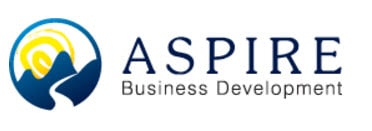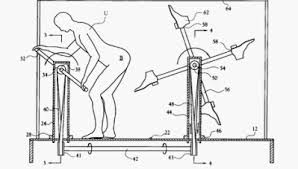Guest Post: Shawn Kinkade…Grow Faster by Slowing Down
We read the following article recently and it really brought some things to light that we’ve talked about for a long time. But Shawn Kinkade of AspireKC stated it so well that I wanted to share it on our blog and with our readers (with his permission, of course).
Shawn has been my business coach for years. I highly recommend working with a business coach (and I’m happy to introduce you to Shawn if you’re looking for one of the best), especially if you’re a know-it-all who doesn’t realize yet that you don’t know it all.
The key to having a successful, growing, and viable business long term is getting help, delegating, and being aware of the ever-changing world. Taking it all on yourself is a recipe for disaster…or at least getting really tired and burnt out. I hope you enjoy Shawn’s article as much as we did…It originally appeared in in Thinking Bigger magazine.
Grow Faster by Slowing Down
November 1, 2015
Working too hard is killing your business.
You’ve owned your business for a while now. You provide a product or service that people need or want, and you do a good job of it. How do I know this? Because you’re still in business. Business owners who don’t offer a great product or service don’t make it very long.
But your company feels like it’s stalling a bit. You’re still really busy—in fact, you’re probably busier than you’ve ever been. But growth, in both top-line revenue and profit, has been really hard to come by. There’s a reason for that stall. It’s counterintuitive, and you’re not going to believe me initially, but it’s true.
You’re working too hard.
The American Dream is founded on hard work, and you strongly (and correctly) believe that if you want to get ahead, you have to work for it. However, once your business is established and has success, the path to the next level of growth requires a different approach. You still need hard work, but as the owner, you have to stop doing all the day-to-day stuff. You have to let go—at least a bit.
Here are the top three reasons you should be working less.
 There Are Only 24 Hours in a Day
There Are Only 24 Hours in a Day
You’re really good at whatever it is that you do. You may be better at that than anyone you know. But once you’re working a full schedule, there’s no room for any more growth. It’s simple math: If you want more business, then you must get other people to do that critical work. If that’s not possible, then you can’t grow.
The good news is that it’s possible to find other people to do that work. Maybe not quite as well as you can do it, but close enough.
Your job as the business owner is (eventually) to teach others how to add that value that you’ve been adding—not to deliver it yourself, but to teach others.
See the Forest, Not Just the Trees
The world is changing fast these days, and your industry is different from even just five years ago. Social media, marketing, sales, technology—all these things are evolving very quickly, and they all have an impact on business.
If you’re working too hard in your business, then you haven’t had any time to spare to think about the big picture and what needs to be done to work on your business. As the business owner, your primary job is looking at what’s going on in the world and adapting your business to all those changes. That’s not just a survival technique. It’s also the best way to uncover great new growth opportunities.
You’re Getting Tired
When you started your business, you weren’t thinking about how excited you would be working 60 to 70 hours a week with no end in sight. Or about not having the option to take a vacation or spend time with your family or friends.
You’re all about hard work. That’s why your business is successful in the first place. But no one can sustain that kind of pace for a long time without complications. Best case, you get burned out, you start going through the motions and you get really resentful about your business. Worst case, you end up with health issues, and you reach a point where you physically can’t do the work that’s needed.
It’s okay to work smarter rather than harder. In fact, if you want to grow your business, you’re going to have to do that. Remember, if the business owner isn’t excited about the business and where it’s headed, then no one else will be either. And you can’t be excited and focused if you’re tired and distracted.
Where Do You Go From Here?
If you’re like most business owners, your initial thought is that you can’t afford to slow down. The reality is if you want to grow, you’re going to have to. You have to build a leadership team (not all at once, but over time) that can truly own most of the day-to-day responsibilities of the business. You have to find a way to get yourself out of the value chain, because that’s the only way to find the time to figure out how to continue to improve the business.
It’s not easy, which is why there aren’t more really successful businesses, but it can be done if you make it your priority.
Ferris Bueller once famously said, “Life moves pretty fast. If you don’t stop and look around once in a while, you could miss it.” He wasn’t explicitly talking to business owners, but he makes a great point.
Your business exists to get you what you want out of life. Is that currently happening with your business? If not, what can you do about it?
(Shawn Kinkade is a licensed professional business coach and owner of Aspire Business Development, helping business owners and entrepreneurs grow strategically through focus, clarity and momentum. (913) 660-9400 // // www.aspirekc.com)


 The last couple of months have been really challenging with getting two kids off to college, selling a house, buying a complete gut job house, planning an Apex sales award vacation for 7 couples, working on my deals, and operating a business with 12 other brokers.
The last couple of months have been really challenging with getting two kids off to college, selling a house, buying a complete gut job house, planning an Apex sales award vacation for 7 couples, working on my deals, and operating a business with 12 other brokers.  In Parts One (
In Parts One ( In Part One (
In Part One ( “Hi Joanne. This is Denise. I understand that you might be interested in selling your home. I can help you with that,” said the Realtor when the homeowner answered the phone.
“Hi Joanne. This is Denise. I understand that you might be interested in selling your home. I can help you with that,” said the Realtor when the homeowner answered the phone. Everyone knows that “Cash is King”, right? Cash is critical to a businesses’ survival. But unreported cash can be a problem for a business. There is a tendency for many business owners to hide cash, under report revenue, or exaggerate expenses in order to reduce their tax bill (illegally). Two obvious downsides to doing this, besides facing an IRS audit, are:
Everyone knows that “Cash is King”, right? Cash is critical to a businesses’ survival. But unreported cash can be a problem for a business. There is a tendency for many business owners to hide cash, under report revenue, or exaggerate expenses in order to reduce their tax bill (illegally). Two obvious downsides to doing this, besides facing an IRS audit, are: The act of “Planning” can conjure up some dread: thoughts of hard work, long meetings, limited results, and risk of missing goals. I guess that’s why so many business owners never put a plan in place for either building a business or exiting a business.
The act of “Planning” can conjure up some dread: thoughts of hard work, long meetings, limited results, and risk of missing goals. I guess that’s why so many business owners never put a plan in place for either building a business or exiting a business. Small business thinking leads to small business value. Thinking as a big company will likely lead to an increase in value. Some simple things to implement now, long before you are even considering selling, that can tremendously impact the value and marketability of your business include:
Small business thinking leads to small business value. Thinking as a big company will likely lead to an increase in value. Some simple things to implement now, long before you are even considering selling, that can tremendously impact the value and marketability of your business include: Knowing the best time to sell can be a real challenge.
Knowing the best time to sell can be a real challenge. Sounds boring right? If you made it this far, thank you. Keep reading.
Sounds boring right? If you made it this far, thank you. Keep reading.